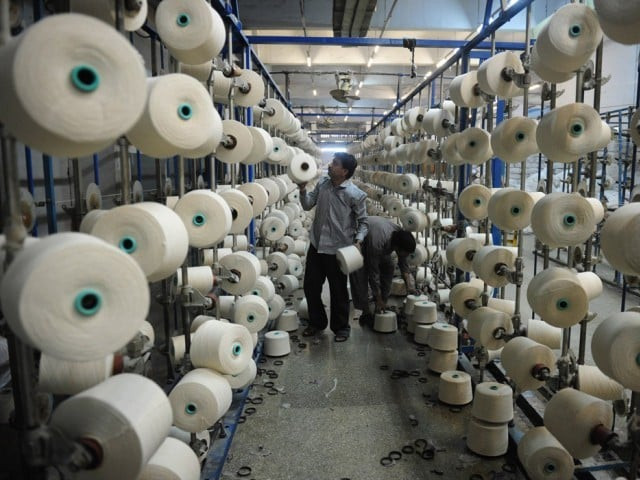Industrialists fear decline in textile exports
Find it tough to fetch export orders in high inflationary phase

Textile exporters have voiced fear that the new fiscal year will pose a significant challenge to the entire industry, as it is becoming increasingly difficult to sustain and fetch export orders in the current high-cost scenario.
In the previous fiscal year, textile exports were nearly flat at $16.7 billion. However, they said, “we fear that exports may drop in FY25 as Pakistan and other export-focused economies are passing through an extremely high inflationary phase, which may force economies into recession.”
“Global economists are predicting a recession in the US in the second quarter of this year, though its central bank has hinted at an interest rate cut in the coming months, but things are going in other direction,” remarked an industrialist while talking to The Express Tribune.
The United Kingdom is also undergoing a recession-type situation whereas the European Union is feeling the heat of Ukraine war.
“This is an election year; the UK has successfully conducted its elections, while the whole world is waiting for the outcome of polls in the US, which could redefine investor sentiment,” he said, adding that global investors expected Donald Trump to be elected as next president and were realigning their investments under the so-called “Trump trade”.
“If he wins, as per his plans he will increase tariffs on trade with different countries, which will redefine global trade and Pakistan’s exports may also be hurt during the process,” the industrialist said.
“We are already losing steam and it is unlikely that with such worrisome export numbers and rising energy tariffs, we can take textile exports into positive territory in the current fiscal year.”
In June, the last month of fiscal year 2023-24, textile exports dipped 9.17% month on month, depicting the deteriorating situation of the important sector of Pakistan’s economy.
Overall in FY24, the sector experienced a negative trend, as textile exports rose only in December and January. The increase came primarily on the back of “Black Friday” and Christmas sales.
Exporters were concerned over the long-term scenario and demanded a clear industry-friendly policy coupled with subsidised energy tariffs, without which it would be a distinct dream to increase textile exports substantially.
They added that they were aware of the extremely difficult phase for Pakistan, where it just managed to avert default. However, they stressed that it was necessary to tax the untaxed people and businesses instead of adding burden on the existing ones, restructure the power sector instead of penalising industries and domestic consumers, who regularly paid their bills.
“At least, the powerful elite can start enforcing austerity measures from the top, which will not only curb expenditures but will also send a positive signal to the entire nation,” an exporter said.


















COMMENTS
Comments are moderated and generally will be posted if they are on-topic and not abusive.
For more information, please see our Comments FAQ